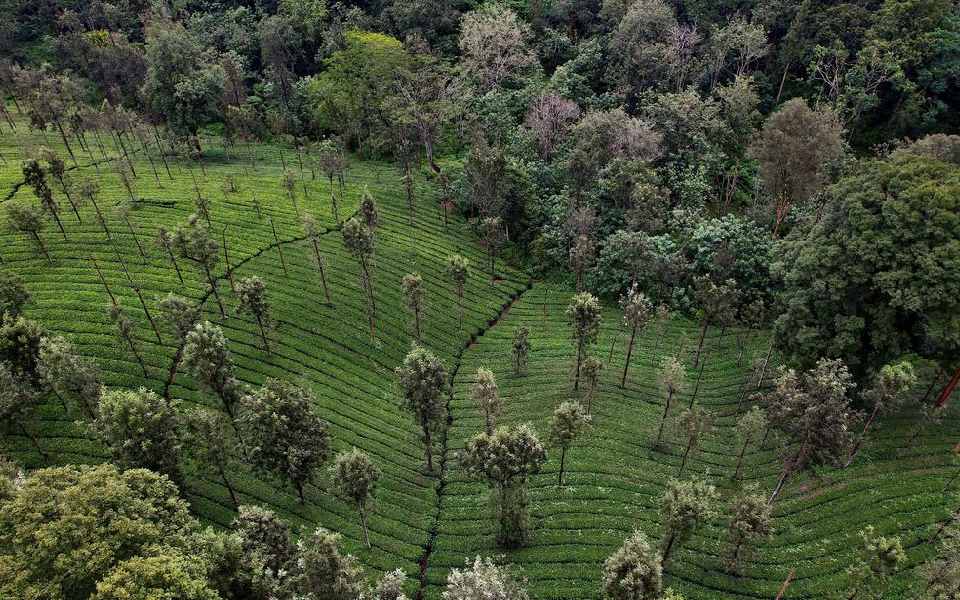New Delhi: India has ranked 176th out of 180 countries in the 2024 Global Nature Conservation Index (NCI), scoring 45.5 out of 100, placing it among the world’s lowest-ranked nations in terms of environmental conservation. Released on October 24, 2024, the report places India alongside Kiribati (180), Turkey (179), Iraq (178), and Micronesia (177) in the bottom tier of the rankings.
The Nature Conservation Index (NCI) is the first-ever comprehensive report assessing countries’ conservation efforts and sustainable environmental practices. Developed by the Goldman Sonnenfeldt School of Sustainability and Climate Change at Ben-Gurion University in collaboration with BioDB.com, the NCI evaluates four core pillars: Land Management, Threats to Biodiversity, Capacity and Governance, and Future Trends. These areas are measured through 25 performance indicators to gauge the effectiveness of each country’s efforts to protect its natural environment.
India’s low rank stems largely from challenges in land management and escalating biodiversity threats. Citing data from the IUCN Red List, the NCI report reveals that 15.9% of marine species and 13.4% of terrestrial species in India face extinction risks. The report highlights a drastic loss of tree cover, with 23,300 square kilometers (8,996 square miles) of forest area lost to deforestation between 2001 and 2019. The index underscores India’s need for stronger regulatory measures to protect biodiversity and calls for enhanced funding, policy implementation, and leadership commitment to conservation.
The report also stresses the need for sustainable fishing practices, noting that 34.5% of fisheries in India’s Exclusive Economic Zone (EEZ) are overexploited. Additionally, India ranks 122nd in terms of law and regulation effectiveness for safeguarding natural resources, a ranking impacted by recent policy changes, such as the Forest Conservation (Amendment) Act, 2023 (FCAA). This act facilitates commercial activities on forested lands and exempts certain infrastructure projects from environmental reviews, raising concerns about regulatory oversight.
India’s Environmental Performance Index (EPI) score has also declined over the past decade, indicating the urgent need for improved environmental policies and practices. The NCI highlights India’s struggles with climate change mitigation, habitat protection, and species conservation. Specific concerns include weak climate change mitigation efforts, limited strategic shifts toward renewable energy, and the absence of effective carbon pricing mechanisms. The report also calls for policies to enhance energy efficiency across industries, buildings, and transport, while maintaining and expanding carbon sinks like forests and wetlands.
The Great Nicobar Island Development Project, which involves substantial infrastructure expansion on a highly sensitive ecological site, is singled out as a significant conservation concern. Environmentalists have raised alarms about potential disruptions to the island’s unique wildlife, which includes 96 wildlife sanctuaries, 9 national parks, and a biosphere reserve.
To improve its conservation efforts, the report recommends India focus on robust conservation legislation, increased investment in its 55 tiger reserves, and the development of compensation programs to incentivize local involvement. It also stresses the importance of managing buffer zones around protected areas and strengthening habitat connectivity.
This ranking is not the first indication of India’s environmental challenges. The country has previously scored low on similar indices, including the 2024 Environmental Performance Index released by Yale’s Center for Environmental Law and Policy and Columbia’s Center for International Earth Science Information Network.
Let the Truth be known. If you read VB and like VB, please be a VB Supporter and Help us deliver the Truth to one and all.
Thiruvananthapuram (PTI): Buoyed by the strong performance of the Congress-led UDF in the local body polls, KPCC president Sunny Joseph said on Saturday that the front's results indicated the people had rejected the LDF government.
According to early trends, the UDF was leading in more grama panchayats, block panchayats, municipalities and corporations than the LDF.
The local body polls were held in two phases in the state earlier this week.
ALSO READ: Cong candidate who moved Kerala HC for name reinstatement in voter list, wins
Speaking to reporters here, Joseph said the people of Kerala had extended their support to the UDF.
"We could expose the LDF government’s anti-people stance and the people understood it. The LDF’s fake propaganda was rejected by the people. The UDF is moving towards a historic victory," he said.
He said a united effort, proper preparations, good candidate selection and hard work had resulted in the Congress and the UDF’s victory in the elections.
Asked about the prospects in the Thiruvananthapuram Corporation, Joseph said the party was studying the matter and would comment later.
LDF convenor T P Ramakrishnan said the results would be closely examined.
According to him, the government had done everything possible for the people.
"Why such a verdict happened will be examined at the micro level. People’s opinion will be considered and further steps will be taken," he said.
He added that decisions would be taken after analysing the results. "If any corrective measures are required, we will initiate them and move forward," he said.
AICC leader K C Venugopal said the results showed that people had begun ousting those who, he alleged, were responsible for the loss of gold at Lord Ayyappa’s temple.
"This trend will continue in the Assembly elections as well. It is an indication that the people are ready to bring down the LDF government," he said.
Venugopal said the UDF had registered victories even in CPI(M) and LDF strongholds.
"I congratulate all UDF workers for their hard work. Congress workers and leaders worked unitedly," he said.
Referring to remarks made by Chief Minister Pinarayi Vijayan against the Congress on polling day, Venugopal said the voters had responded through the verdict.
"I do not know whether the chief minister understands that the people are against him. Otherwise, he does not know the sentiment of the people. The state government cannot move an inch further," he said.
He said the results indicated a strong comeback for the UDF in Kerala.
Asked whether the Sabarimala gold loss issue had affected the LDF in the local polls, Venugopal said the CM and the CPI(M) state secretary did not take the issue seriously.
"We took a strong stand on the matter. The BJP played a foul game in it," he alleged.
On the BJP's role in the local body elections, Venugopal alleged that the party operated with the CPI(M) 's tacit support.
"The CPI(M) supported the central government on issues such as PM-SHRI, labour codes and corruption in national highway construction. The CPI(M) is facing ideological decline, and the state government’s policies are against the party’s own decisions," he said.
Meanwhile, LDF ally Kerala Congress (M) leader Jose K Mani said the party could not win all the wards it had expected in the elections.
He congratulated winners from all parties and said the party would closely examine the losses and identify shortcomings. "Later, we will take corrective measures," he added.
Senior Congress leader and MP Rajmohan Unnithan said the trends in the local body elections indicated that the UDF would return to power in the 2026 Assembly elections.
"We will win 111 seats as in 1977 and return to power in 2026. The anti-government sentiment of the people is reflected in the elections," he said.
Unnithan said the people were disturbed and unhappy with the present government.
"The trend indicates the end of the LDF government," he added.
CPI(M) MLA M M Mani said the people had shown ingratitude towards the LDF despite benefiting from welfare schemes.
"After receiving all welfare schemes and living comfortably, people voted against us due to some temporary sentiments. Is that not ingratitude," he asked.
Mani said no such welfare initiatives had taken place in Kerala earlier.
"People are receiving pensions and have enough to eat. Even after getting all this, they voted against us. This is what can be called ingratitude," he said.
Muslim League state president Panakkad Sayyid Sadiq Ali Shihab Thangal said the results were beyond expectations.
"The outcome points towards the Secretariat in Thiruvananthapuram, indicating that a change of government is imminent. We are going to win the Assembly election," he said.





